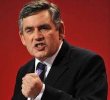It's fine and having researched John Edwards I can understand your point but the US were still in the midst of a booming economy with a constant declining rate of unemployment and rapid access to healthcare and education. Plus the Anti-Poverty agenda would be massive help for the democrats. This would be a contrast to a republican party divided between the moderates and the right wing. And divided. parties don't win. But do remember Democrats have won 5 elections before in 1932,36,1940,44 and 1948.
I explained in a previous comment why I don't think those two situations are in any way analogous. Don't forget, the democrats IOTL lost in 2000 in an economy that was booming far greater than it is in 2008, and that was only after two consecutive victories. Another thing is that economies simply don't boom for 20 straight years, hell, they don't even boom for 10 straight usually. Also, divided parties do absolutely still win elections. The GOP was divided in 1968, 1980, 2016, etc and still won, and democrats were divided for most of the 20th century and still managed to win elections. Not to get into current politics, but the democrats were more ideologically divided than the GOP in 2020 and they still won. I've said this in other threads before, but wank TLs (whether left or right-wing) where one side always benefits from the things that happen and the other side always loses are unrealistic and it takes away from the enjoyment of the good writing.
